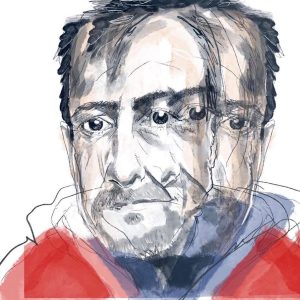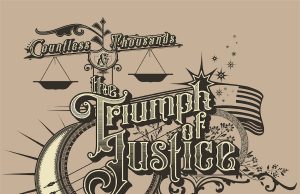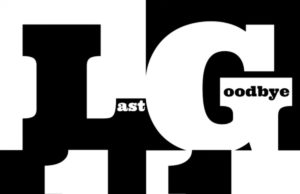 What do Gary Cherone and The Littlest Hobo have in common? Until tomorrow, they’ll just keep movin’ on. The lead vocalist made just one album with Van Halen, the slightly progressive and lame Van Halen III in 1998 — the product of a year’s work while he lived in Eddie Van Halen’s guest house. The album is basically an Eddie solo record.
What do Gary Cherone and The Littlest Hobo have in common? Until tomorrow, they’ll just keep movin’ on. The lead vocalist made just one album with Van Halen, the slightly progressive and lame Van Halen III in 1998 — the product of a year’s work while he lived in Eddie Van Halen’s guest house. The album is basically an Eddie solo record.
Cherone got the vocalist gig because the band’s manager also managed Extreme, of which Cherone was the singer. That’s him on their huge hit, the ballad More Than Words. The song came out in 1991 and landed them an opening gig with, ironically, David Lee Roth. When Van Halen had a falling-out with vocalist Sammy Hagar in 1998, it was Roth who was first approached to return as frontman. He declined and Cherone’s name was given to Eddie, who approved. The album they made went gold, but was a flop by Van Halen standards.The best part for fans was the fact that with Hagar gone, the band performed more classic, Roth-era songs live. But that’s not much of a feather in Cherone’s cap — he wasn’t included as a member when Van Halen were inducted into the Rock And Roll Hall of Fame.
Fun facts: Van Halen III is the only album the band made which isn’t available on vinyl. The Roth-led comeback A Different Kind Of Truth from 2012 is the only one not available on cassette. 1984 was the last Van Halen album available on 8-track cartridge.
Speaking of the mid-’80s, that’s where we’ll go next for another interesting one-and-done lead vocalist. Ian Gillan was far more established than Cherone when Black Sabbath hired him to be Ronnie James Dio’s replacement. They also brought back original drummer Bill Ward following the departure of Vinnie Appice, who incidentally has the distinction of being the last drummer to perform with John Lennon. Appice and Dio left to form the band Dio, which had great success in the ’80s. Ward played on the album Born Again, but wasn’t well enough to tour. The band brought in former Move/ELO drummer Bev Bevan for that. Ward had quit Sabbath in 1980, a full-blown alcoholic. By the time he rejoined he was sober, but started drinking again by the end of the Born Again recording sessions; thus the decision to give the tour a miss. It was his last studio album with Sabbath.
By the time Gillan joined the band, he had already made five studio albums with Deep Purple and eight Gillan Band albums. No surprise, then, that the band sometimes did Smoke On The Water in their encore. Gillan wasn’t the only vocalist considered. Apparently there were fantasies involving Robert Plant, which I can’t fathom. There was also the ever-present David Coverdale and some unknown dude with great hair named Michael Bolton.
As soon as the tour wrapped, Gillan bailed and rejoined his old Deep Purple bandmates for the acclaimed reunion album, 1984’s Perfect Strangers. I actually really like Born Again and would love to see Tony Iommi do something with the rediscovered master tapes. I bought it in a deleted bin in the ’90s, based solely on the terrifying cover.
There are more one-off lead vocal roles related to the Deep Purple universe — namely Ritchie Blackmore’s Rainbow. Formed in 1975 by Blackmore and the members of Dio’s band Elf, the band has gone through 15 different lineups since then including a few periods of inactivity. It seems, at present, to be defunct. I mention Rainbow because the band actually had two lead vocalists who couldn’t even stick around long enough to make a single studio album: Jack Green and Ronnie Romero. Another lead singer, Doogie White, only appears on one studio album. In all, Rainbow has had six lead vocalists — Dio, Green, Graham Bonnet, Joe Lynn Turner, White and Romero.
In 2007, Anthrax announced their new vocalist was Dan Nelson, after John Bush refused to return following the band’s reunion with classic-era lead vocalist Joey Belladonna. Nelson toured with the band and co-wrote and recorded a slew of songs for a new record. But he claims to have been fired by the band in 2009. All his vocal tracks were erased and re-recorded by Belladonna, who returned for the release of 2011’s Worship Music. Eight of the 13 songs on the album were co-written by Nelson.
Prog bands Genesis, King Crimson and Yes can also lay claim to having had lead vocalists who only appeared on a single studio album. Well, in the case of King Crimson, there are two of them. Gordon Haskell actually appears on one track on their sophomore release In The Wake Of Poseidon (Cadence and Cascade), recorded after vocalist Greg Lake quit to start Emerson, Lake and Palmer. But really, Haskell’s one album with Crimson was 1970’s Lizard. For the next album, Islands, Crimson leader Robert Fripp brought in Ray ‘Boz’ Burrell to be the lead vocalist and bass player. This despite the fact that Burrell couldn’t play bass. Fripp and drummer Ian Wallace managed to teach him. The band broke up while touring and Boz went on to be a founding member of Bad Company.
How many people have been members of Yes? Twenty featured members and 29 session or guest musicians. And that’s just the studio material. Nor does it include offshoots like Anderson, Wakeman, Bruford & Howe, GTR, Asia or Cinema. There have been 27 different Yes lineups. Among that small army is one lonely lead vocalist who appeared on just one album — Trevor Horn, who was the lead singer on the underrated 1980 album Drama. He returned as the producer of the major comeback album, 1983’s 90125. Horn was the central figure of The Buggles, who had a major hit in 1979 with Video Killed The Radio Star. He went on to be a very successful producer and also made music as part of Art Of Noise.
Genesis are known for being one of the bands who managed to replace a very successful lead vocalist (Peter Gabriel) with an even more successful one (Phil Collins). But I must admit, I’d somehow forgotten about Ray Wilson, who had the job during Collins’ brief retirement in 1996. The Scottish singer is on the 1997 album Calling All Stations, which I’ve actually never heard. It’s one of two Genesis albums I don’t own. The other is We Can’t Dance. The band cancelled tour dates in 1998 due to poor sales and officially called it a day in 2001 before reuniting with Collins in 2006.
Quickly, here are three more one-album-only lead vocalists: Charlie Dominici (Dream Theatre), Chester Bennington (Stone Temple Pilots) and Sam Blue (Ultravox).
You probably noticed I didn’t include bands who only made one studio album, like The Sex Pistols. Or, bands with multiple lead vocalists like Abba, The Band or Three Dog Night. Bands with the most lead vocalists could have also been fun — Deep Purple has had five but Fleetwood Mac has had 13. Thirteen. Thirteen of its 18 members have been lead vocalists or shared lead vocal duties.
So let’s end with this — Ian Anderson. One of probably very few lead vocalists who have only ever been the only lead vocalist in their band. In this case, Jethro Tull.
• • •
Area Resident is an Ottawa-based journalist, recording artist, music collector and re-seller. Hear (and buy) his music on Bandcamp, email him HERE, follow him on Instagram and check him out on Discogs.










































